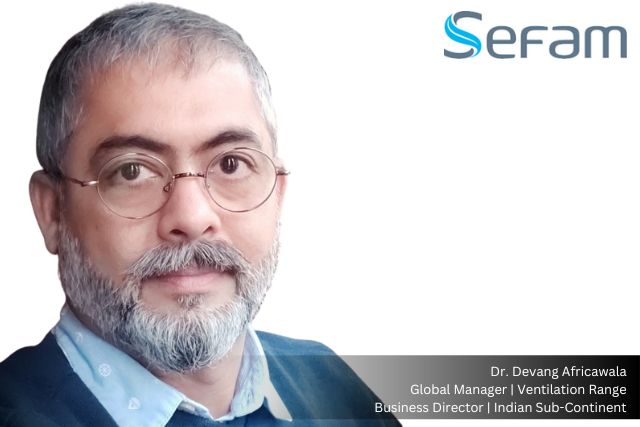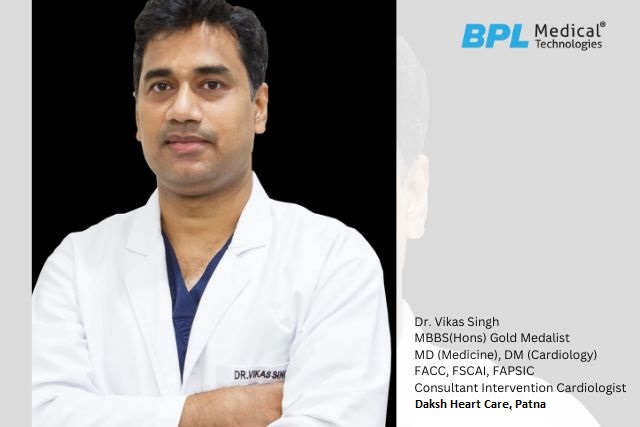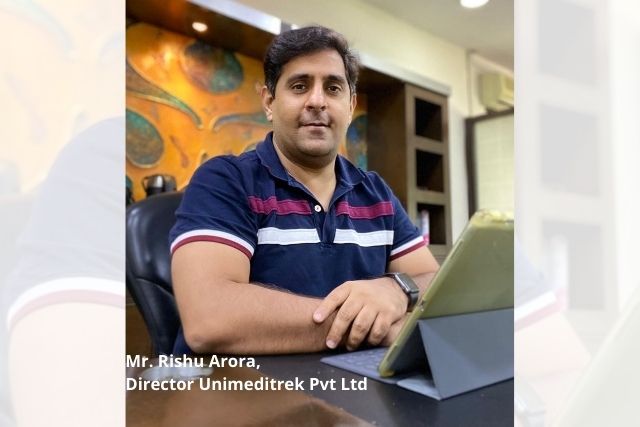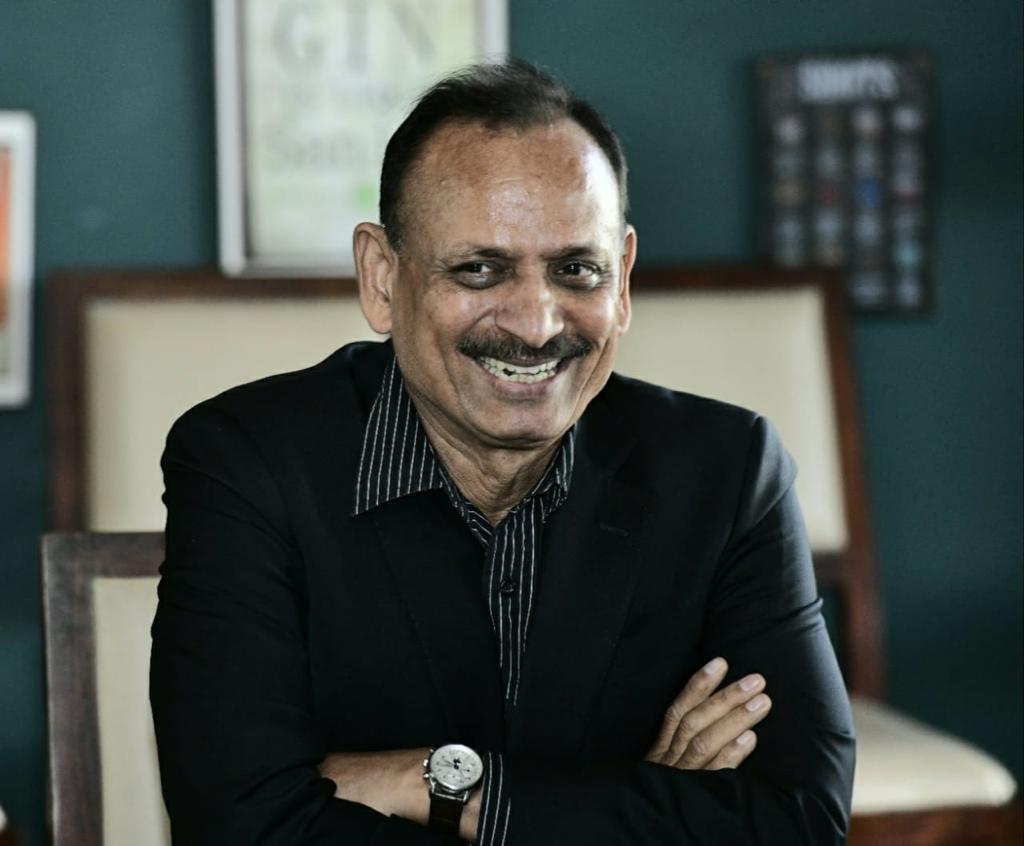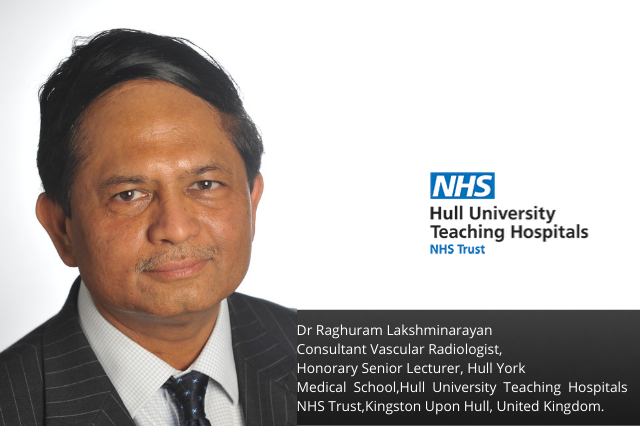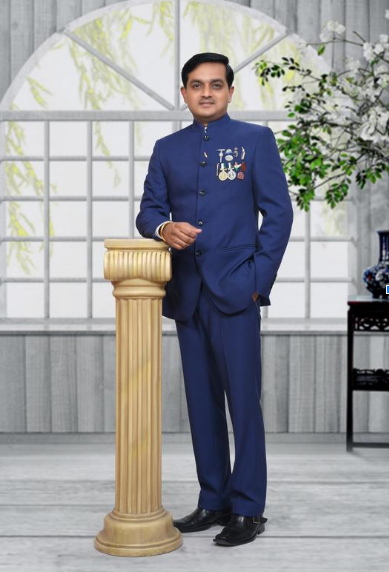Dr Parvez Ahmad MD, DTCD, MPH, FICM, FCCS, DHA, M.Phil,MBA (Hospital Mgmt), PGDMM, PGDMLS is a Consultant pulmonologist & critical care specialist apart from these he has also expertise in below;
- International Surveyor – ISQua
- Principal Assessor – NABH, Quality Council of India
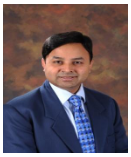
- Planning & Designing Expert of Hospital
- ISO Auditor
- Instructor – FCCS (USA)
- Certified Six Sigma Green & Yellow Belt
- Medico legal Expert
- Public Health Expert
- Visiting Faculty – Healthcare/Hospital Management Institutions
- Joint Secretary and Treasurerof Indian Chest Society (UK Chapter)
Microbioz India had an exclusive interview with Dr. Parvez Ahmad.
What prompted you to become a doctor & why did you choose this specialization?
I respect the human life. In childhood, we have learnt that “health is wealth”. It is a simple phrase which emphasizes the importance of health in our lives. Health is a state of physical, mental and social well-being. Wealth is precious only if we have the health to enjoy it. Therefore I respect human life and decided to become a doctor.
While I was doing MBBS in 1993, WHO (World Health Organisation) has declared Tuberculosis (TB) as a global emergency. I have observed that lots of patients are dying of TB. Presently 2 patients are dying of TB in every 3 minutes. Other respiratory problems like pneumonia and asthma etc are also prevalent in our country.
Hence my interest got enhanced in chest medicine. I have pursued my post-graduation course in pulmonology. There are a very few pulmonologists who are also trained in interventional pulmonology in India. This stream has further encouraged me to serve my nation where it needs me more.
Later on I have realised that, I need to strengthen my administrative and managerial skills to improve the efficiency and outcome of my professional work so I have decided to do Post graduation in Hospital Administration followed by M.Phil in management and later on I felt the need of Public Health so did my master’s in Public Health also. Presently I am involved in many activities like I am anISQua – International Surveyor, NABH Assessor, Medicolegal expert and Hospital planning and designer expert.
During my educational journey, I have realised that a better approach to treatment is not only proper medicine but also to communicate and counsel the patients.
The Key of becoming a successful doctor: Doctor should have following qualities to become a successful doctor in life:
Good Human being
Good counseling& convincing skills
Ethical and evidenced based practice
Good managerial skills
Sound knowledge of his specialisation or domain.
What do you do if a patient refuses care at the risk of his or her own safety under your medication?
If a patient refuses his/her care under my treatment, then I try my best to counsel the patient using my communication skills. I try to see and understand the patient’s perspective. My priority is to allay the patient’s apprehension and inform the patient about the grievance of the disease and the hope of relief with the treatment which I will advise him/her. Meanwhile I try to take the attendants/relatives in confidence regarding the problem and its solution. All involved risks and hazards are explained in detail.
In case of patient’s non compliance to my offered treatment, then I accept their refusal, no matter how much I disagree.
More importantly, I document about the disease, the findings and the treatment advised. I make a written record of the informed risks and possible consequences of refusal the treatment resulting in threat to safety, health and life of the patient by obtaining a signature of patient and his relatives.
What would you do if a physician questions the accuracy of your work?
There are some instances where 2 different doctors have difference of opinions in the management of the patient. Such incidents are easily avoided by respecting each other’s opinions and working together in order to benefit the patient the most.
How do you like to be recognized for your hard work?
I am presently working as a clinician and an administrator also. Dual job means double the responsibility. I look after hospital operations, administration, quality and accreditation, legal issues and new project planning for the institution.
With God’s grace, I have a modest number of achievements. My biggest recognition for my hard work is the word of kindness from my patients and their relatives. I am encouraged by the acknowledgement given to me by the management and my colleagues. It is extremely gratifying to see the smiles on my patients’ faces
What are your biggest job motivators? Its patient care or certain responsibilities?
Patient’s care and my responsibilities are both behind my motivation. Whenever my patients offer gratitude by saying that you have saved my life, there is no bigger motivation than these words of encouragement.
Running a hospital requires a lot of meticulous attention over the smallest of nuances. It requires immense dedication and compassion for your field of interest. I am fortunate to handle both clinical and administrative work simultaneously. Both are two facets of the same coin. I thoroughly relish both my duties as they go hand in hand.
One must anticipate failures along with success. While implementation of new ideas and methods in administrative work in hospital, there are a few times when things don’t work out as planned. One should be strong enough to accept strength and weaknesses as a part of game.
I practice balancing my professional and personal lives. I dispense my duties as an obedient son, a loving husband and a responsible father to my 2 daughters. A happy personal life reflects a successful professional life.
How do you try and create a great patient experience?
it is extremely important for a doctor to create a great patient experience. It is not only my responsibility but the entire team of my hospital to make the otherwise morbid situation of the patient turn into memorable and smooth experience.
It is the responsibility of my entire team to take care of the patient starting from security guard at the gate, the OPD staff, nurses, floor managers, paramedics, junior doctors and diagnostic staff, support service staff and consultants and administrative staff etc. We need to treat the patient with a healing touch. Most importantly we need to communicate with the patient to understand their pain and fears. Their privacy and Patient’s Rights has to be preserved and respected. Frequent doctors and nursing care, timely and appropriate tests and medication and timely cross consultation develop the faith of the patients in the doctor. We regularly counsel the patient and their family members about their disease and its preventive aspects. There should be an informed treatment and any change in the treatment shall be priorly informed. All discharged patients are counselled about their discharged medication including discharged instructions and preventive aspects of the disease. Patients are counselled regarding emergency care and follow up care in their own local language by the doctor or the nurse.
Other administrative approach to create a great patients experience is through putting a systems on place, Developing SOPs/Policies and its implementation, staff training and grooming, good patients flow infrastructure, adhering to infection control guidelines and implementation of Quality accreditation like NABH, JCI etc.
How many patients do you feel comfortable providing care to at one time?
I prefer to see one patient at a time. I need to listen to the complaints of the patient privately. Then a detailed discussion regarding the nature of disease, its prevention and the course of treatment is discussed. Along with patient, their attendants are also counselled about the nature of the patient and its prevention like tuberculosis and COPD. I see one patient at a time in IPD also giving each and every patient undivided attention up to my and Patient’s satisfaction.
Patient is given the faith of confidentiality. In emergency services, time on a single patient is often guarded depending on the severity of the situation
What types of technology are you most experienced with?
I am well versed with my i-phone and my laptop only, like other users of their cellphone and laptop and to some extent to Autocad drawings an architect software. I am a trained but non-qualified architect as I am also a Hospital planning and designing expert, I can design the small hospital to large hospitals including medical colleges as per the applicable guideline to hospitals like CEA, MCI, NBC, AERB, PCB, CDC, infection control and other related guidelines applicable to healthcare including NABH guidelines. While planning and designing the hospital, focus is also given to the patients flow in the hospital and how we can run the hospital with minimum manpower, green building etc are my core area.
How do you deal with stressful work situations?
It’s fact that some time stressful movements comes in the work situation but that particular time is very important as part of the life and to experience and enjoy the charm of happiness in future as that situation teaches you a lesson and prepare yourself to become more strong to face the life and upcoming stressful situations.
Although during such situations generally I keep calm myself, think about the good memories, going on tour, spending more time with my family and friends to overcome with the stress.
I regularly play the badminton in the morning, that’s also work as a stress buster and keep me fit. All of us should involve ourself in any kind of sports or activities.
How recently invented modern technologies are making doctors life easier?
Technology is always good and I always believe to go along with technology and try to upgrade my skills. We have to adopt latest advances in healthcare IT in our clinics / hospitals.
PACS in Radiology, and telemedicine and tele-radiology has really brought a ease to the doctors as well as to the patients, specially to the remote / rural area where availability of the radiologist is not possible. Xray /CT film can be shared immediately with the tele-radiology system or PACS system so report can be given through PACS to the recipient of remote area. Telemedicine is very useful for consultation and follow of the patients in rural/remote areas and cross boundaries.
Application of Hospital Management Information System, Centralised ICU monitoring system, e Records, Use of RFID, OPD Q Management system, Ambulance tracking device etc are also useful technology, which are making doctors life easy.







